Jameis Winston, the Tampa Bay Buccaneers' rookie quarterback, threw for 287 yards and two touchdowns against the Carolina Panthers in Week Four, but he was also picked off four times, and those turnovers were clearly the deciding factor in the game.
The basic and undeniable evaluation of those interceptions is that four of them is too many in any game, regardless of the circumstances. Of course, Buccaneer coaches and players break down every play of every game in much greater detail than that, and it is also true that not all interceptions are created equal. On Wednesday, Offensive Coordinator Dirk Koetter put those four picks into three different categories.
"We had four interceptions," said Koetter. "It's a fact; we had four. Two bad decisions, one tipped ball and one great play. That's what I wrote on my sheet: two bad decisions, one tipped ball, one great play."
The great play in question was Thomas Davis' surprising leap to snare a short pass intended for Mike Evans in the fourth quarter, and it was a ball tipped at the line that led to Kurt Coleman's pick in the second quarter. The other two interceptions, both by cornerback Josh Norman, were the most pressing concerns during film study this week, because they were mistakes that could have been avoided, and need to be avoided in the future. And one of the things Winston can do to avoid some of the turnovers is to occasionally opt for the safer throw over a big-play attempt.
READ: THURSDAY'S INJURY REPORT
"It really is that simple," said Winston. "You just have to take the simple play. Give it to your back, let him make a big play. You can't put everything on yourself. Sometimes [defenders] they make good plays. Thomas Davis made a great play on that interception. There are so many ways you can sum up an interception, but at the end of the day you just got to try to limit those. There are opportunities to make that play and try to protect it a little bit more."
That is a lesson that is simple to absorb mentally during a film session and easy to repeat at a Wednesday press conference but not necessarily easy to execute during the chaos of a live game. Jacksonville Jaguars quarterback Blake Bortles, the third overall pick in the 2014 draft, started 13 games as a rookie last fall and remembers that learning experience well.
"It is hard – there's definitely a balance between being aggressive and being out of control," he said. "As a quarterback, you want to push the ball downfield, you want to make plays happen, especially when things aren't going well, your record's not what you want it to be and stuff like that. You want to be the guy that makes things happen and helps your team to victory.
READ: JAGUARS SCOUTING REPORT
"But you have to be smart with it and know and kind of trust that if you take it bit by bit, it'll add up. Not every play has to be a touchdown. A check-down can be your best friend at times. And I think being smart with the football and kind of just continuing like that."
Bortles Jaguars come to Tampa this weekend to take on Winston's Buccaneers, and in this case it's the second-year passer who is the more seasoned of the two. Bortles has seen his numbers begin a gradual rise this year – his passer rating, for instance, is 78.9 after he turned in a 69.2 mark as a rookie – and most importantly he's thrown twice as many touchdown passes as interceptions (6-3) after having an 11-17 ratio last year.
Of course, the Jaguars are 1-3, like the Buccaneers, and their passing attack ranks 20th in the league, so there is still plenty of room for Bortles and his young offensive crew to grow. The important thing is that they are seeing progress in Jacksonville with their young quarterback. Jaguars Head Coach Gus Bradley expects the same thing to happen in Tampa with Winston.
"The game is so fast it requires you to make split-second decisions and that's where I think he'll adjust," said Bradley of the Bucs' passer. "He's so athletic and you can see flashes where he makes really, really good plays and good decisions that I think you will see more consistency come, but it is tough. I know first-hand from our experiences with it, and that was a big conversation we had, was just the speed of the game. Teams are trying to confuse him and do different things coverage-wise. You can imagine as you are dropping back that you are trying to figure those things out. It's tough. The quarterback position in the league, you can't talk enough about how difficult a position it is to play."
Photos from the Bucs' practice on Wednesday.
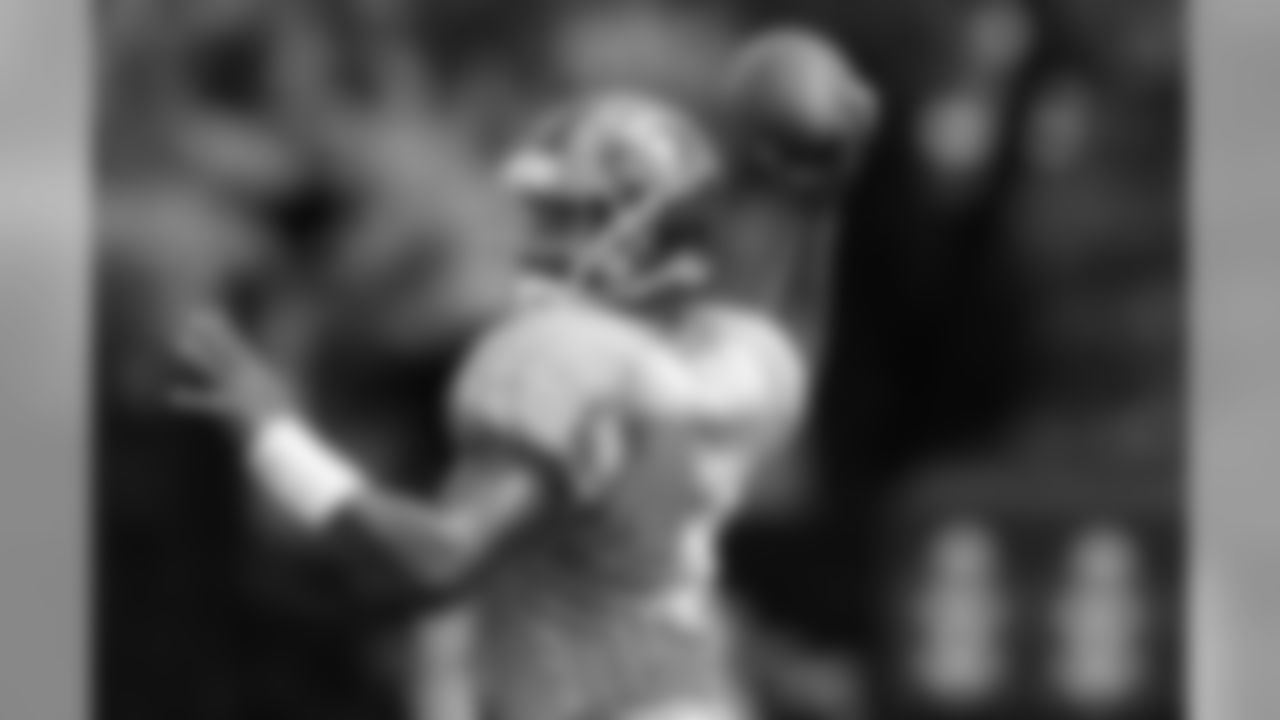
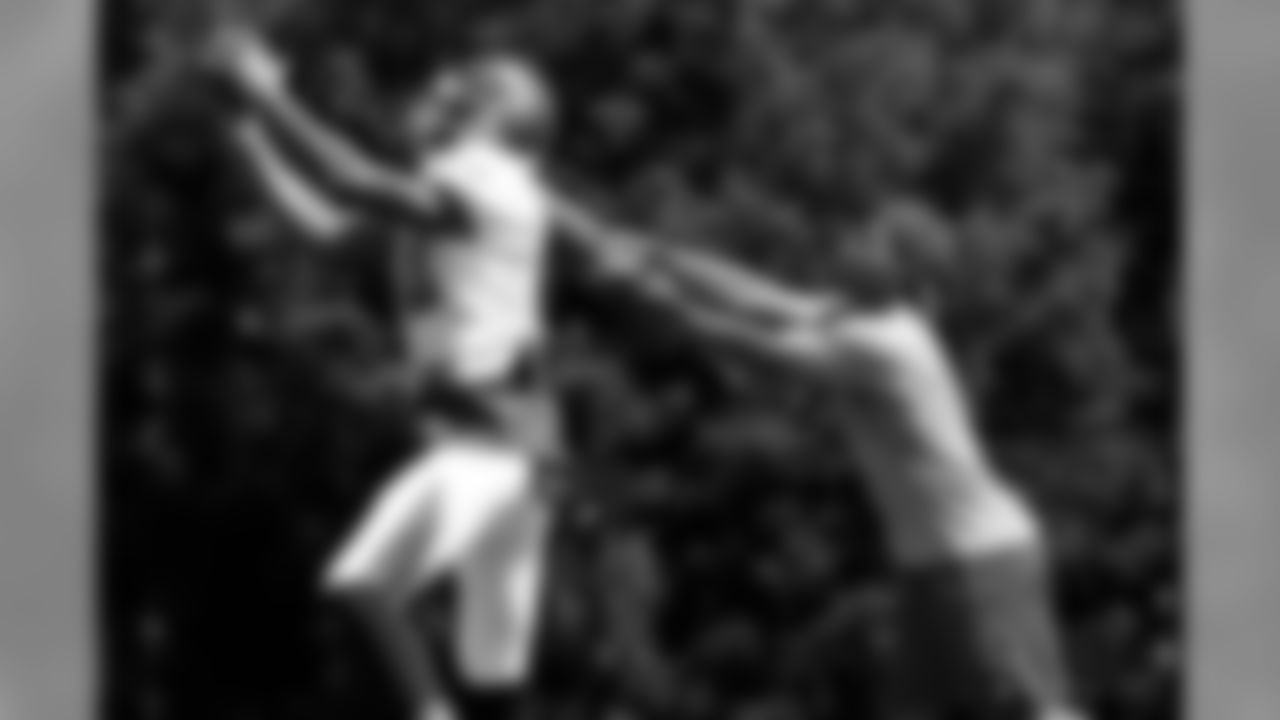



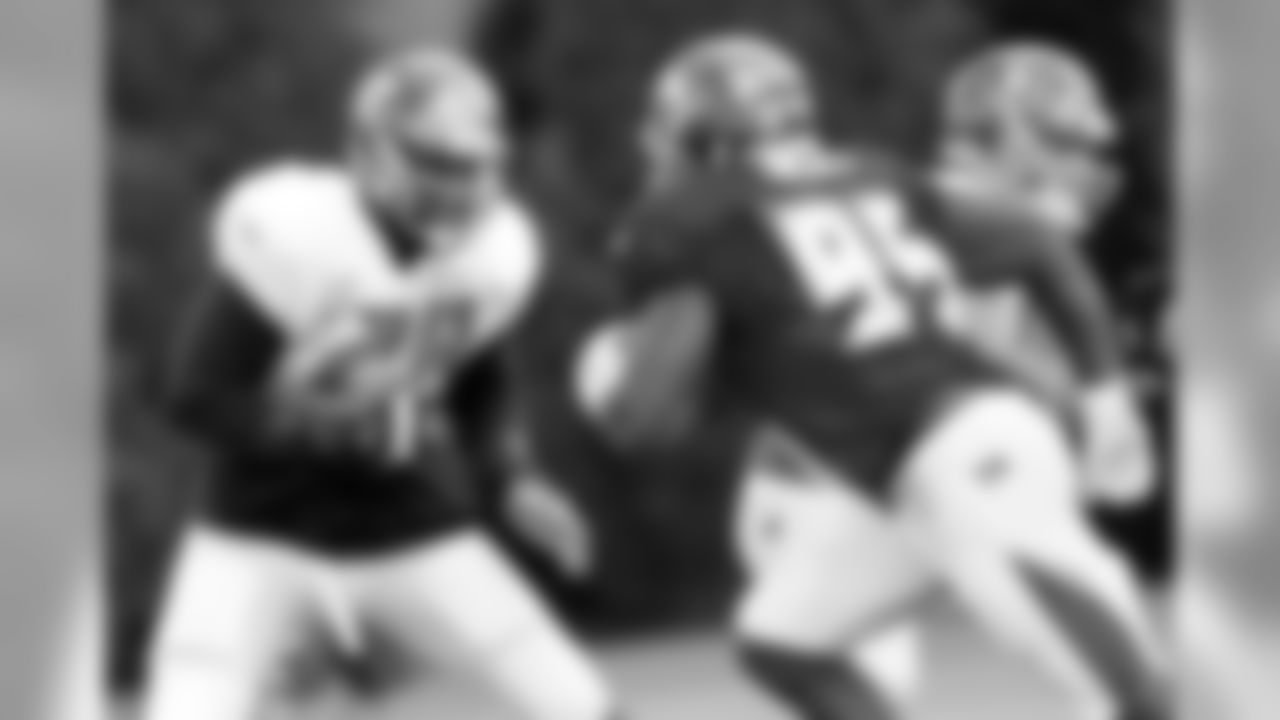
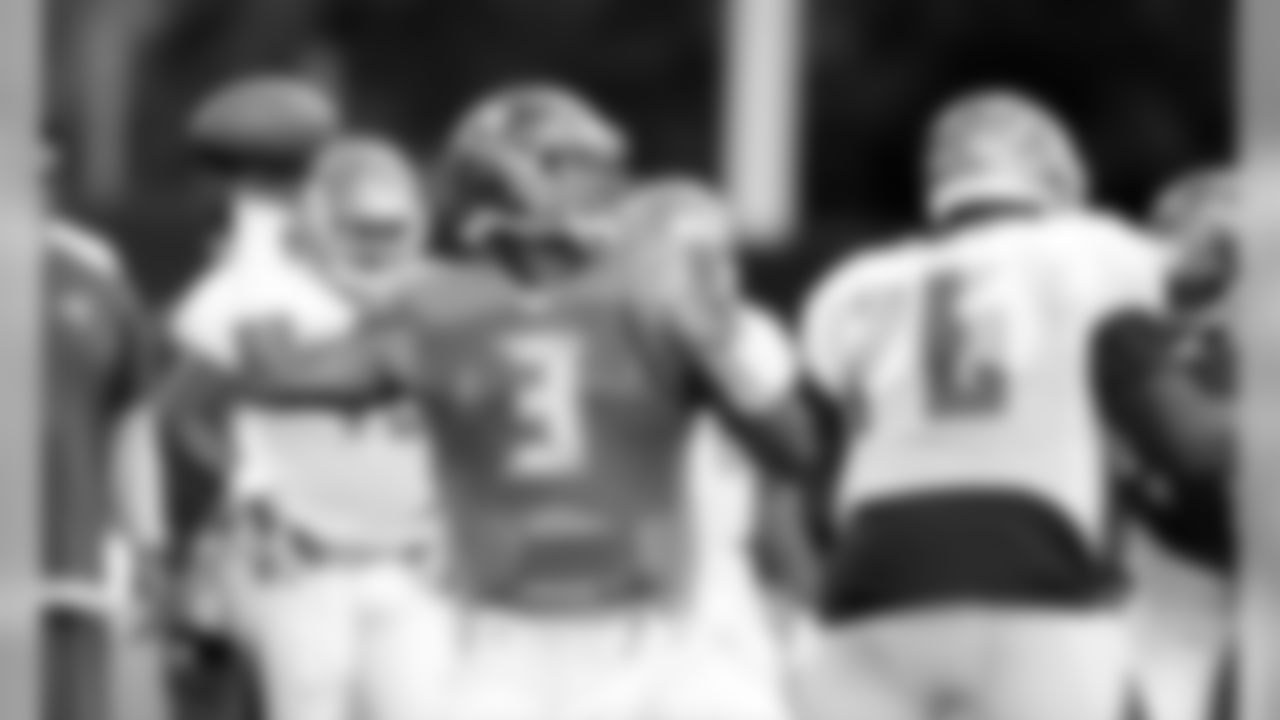
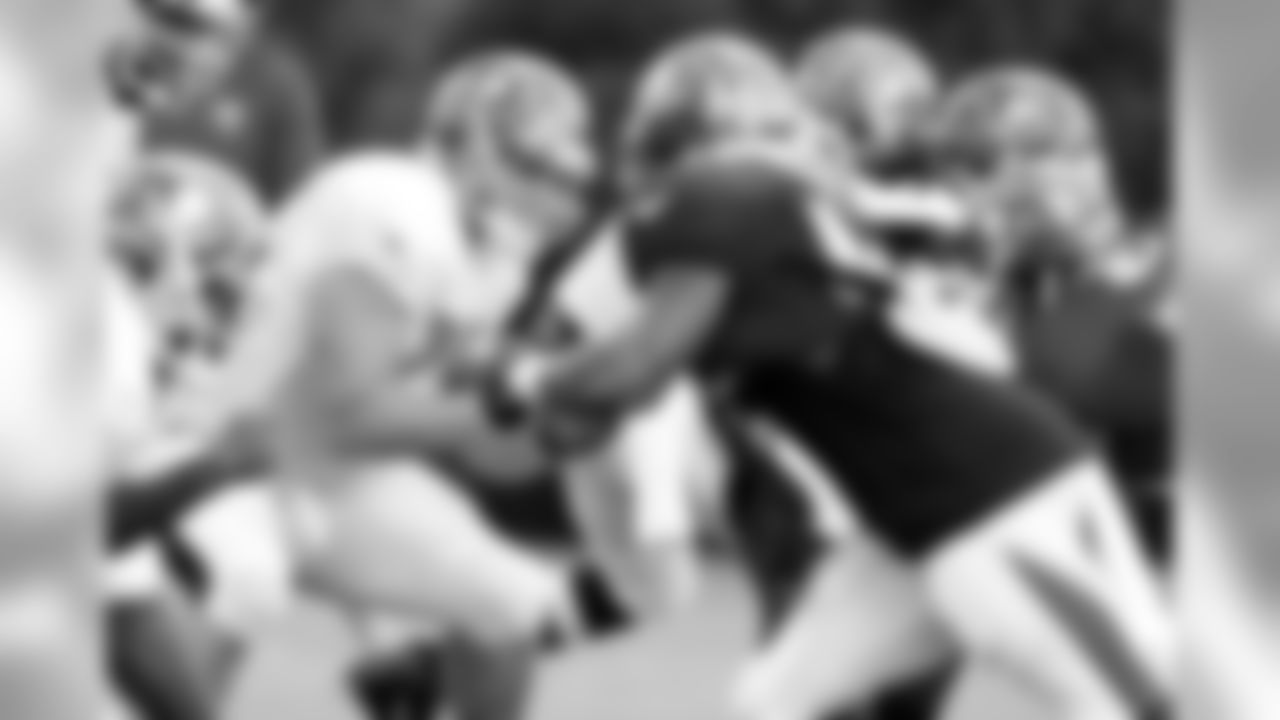
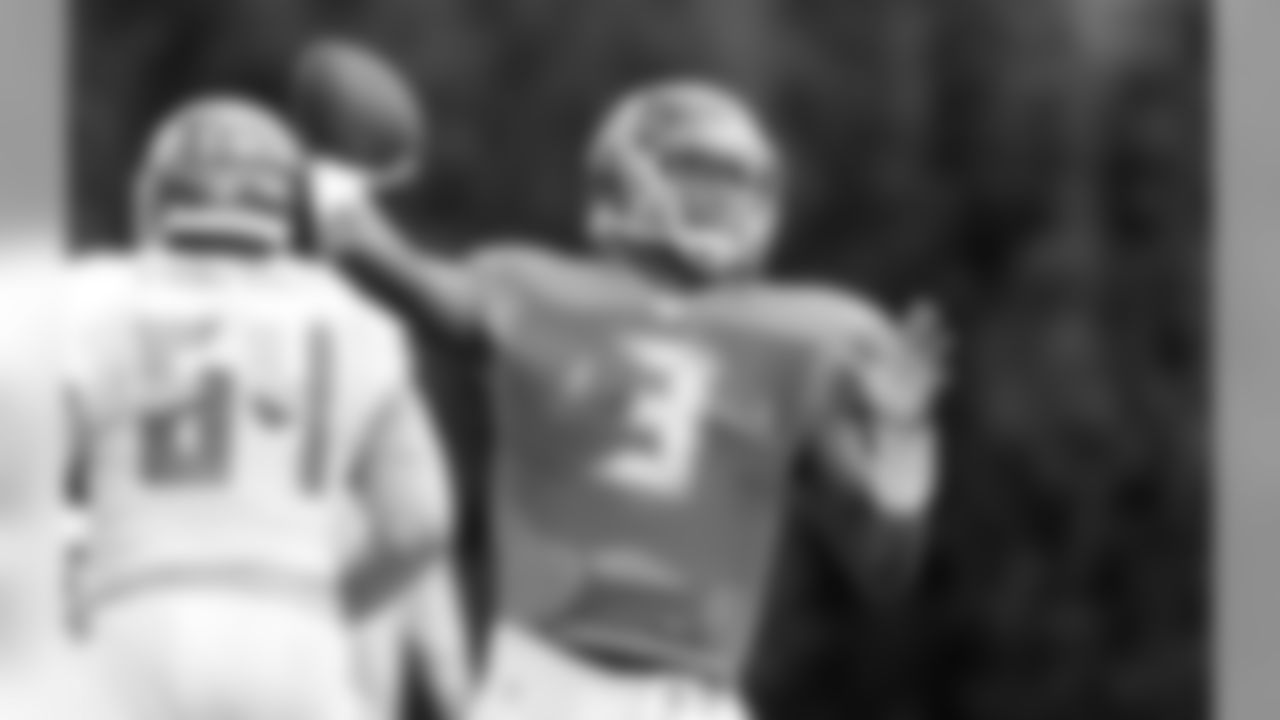
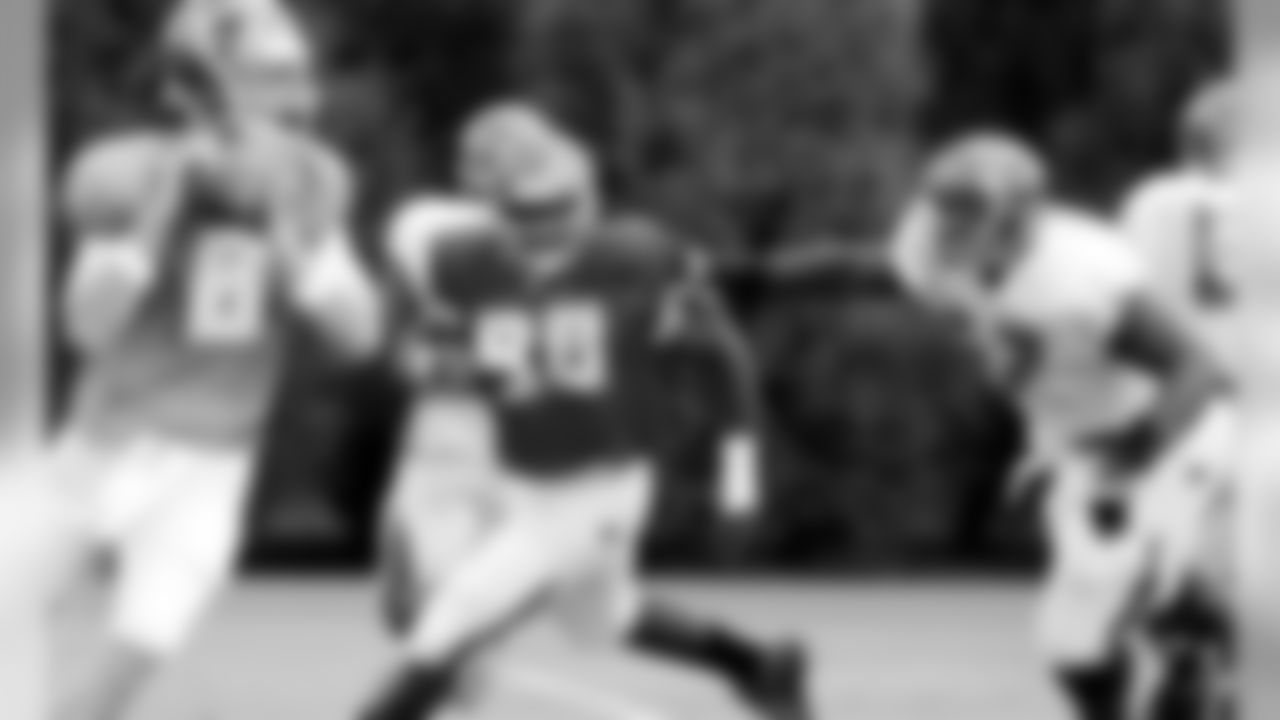
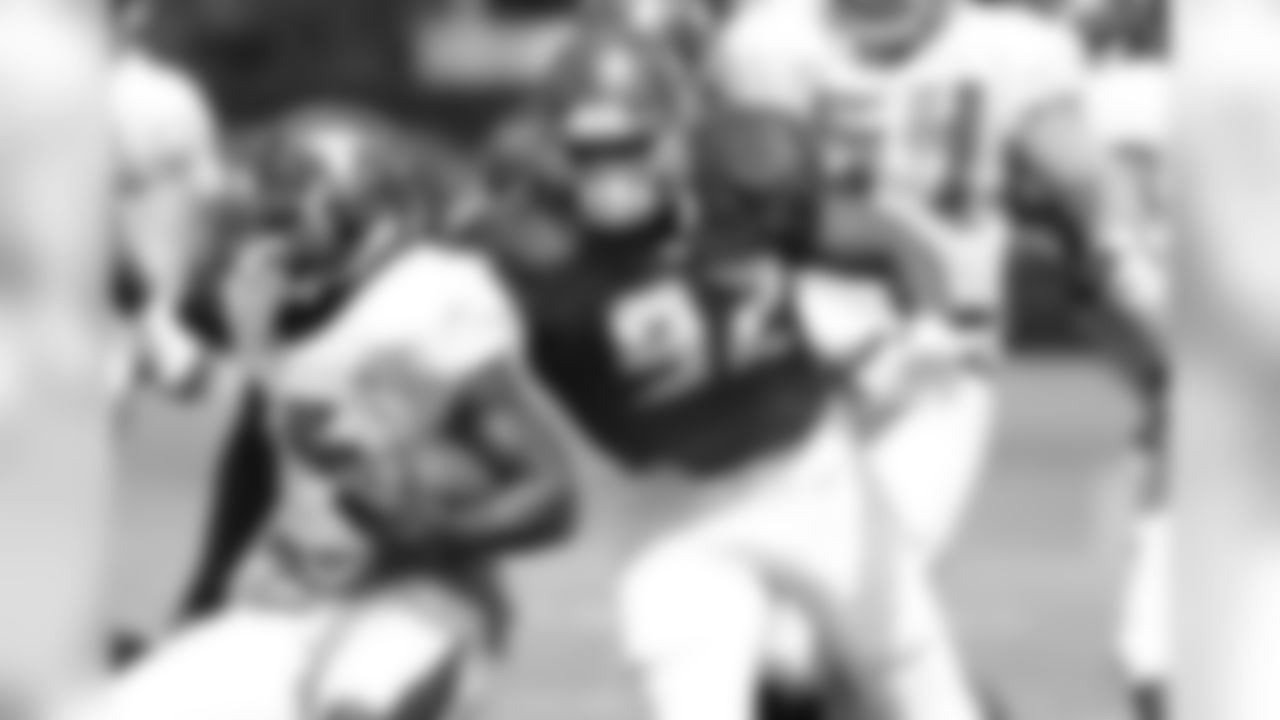

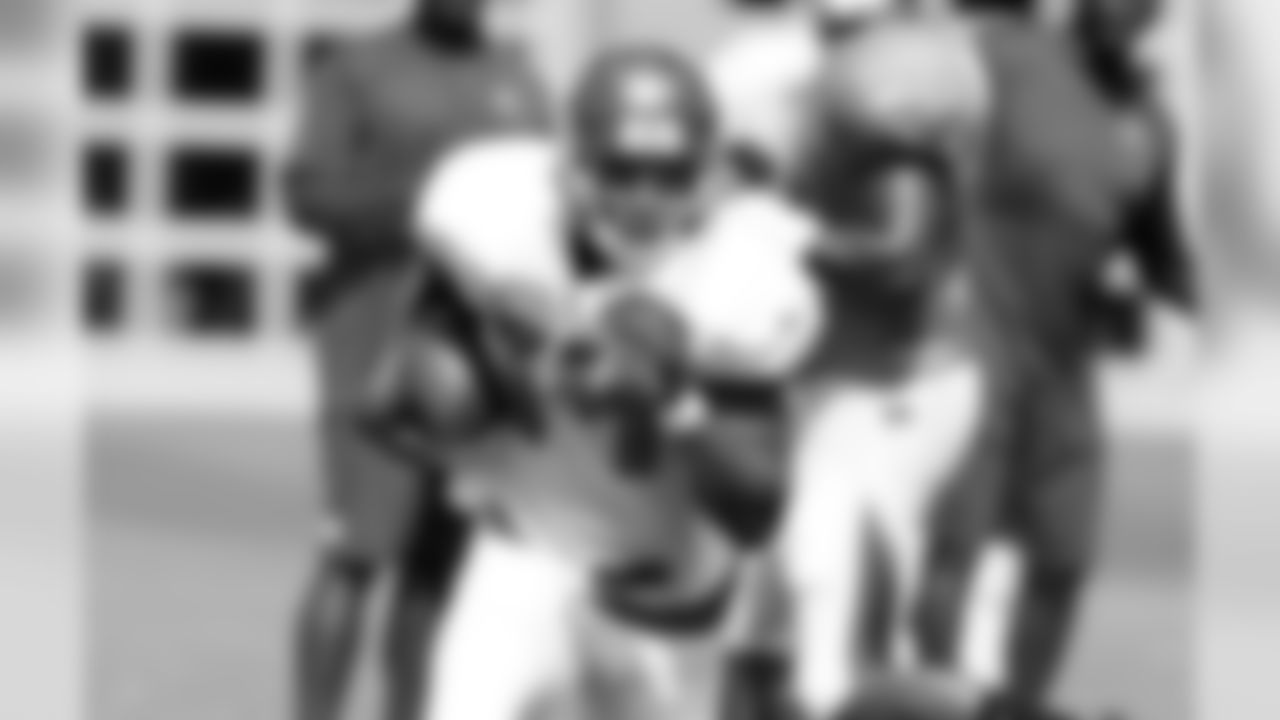


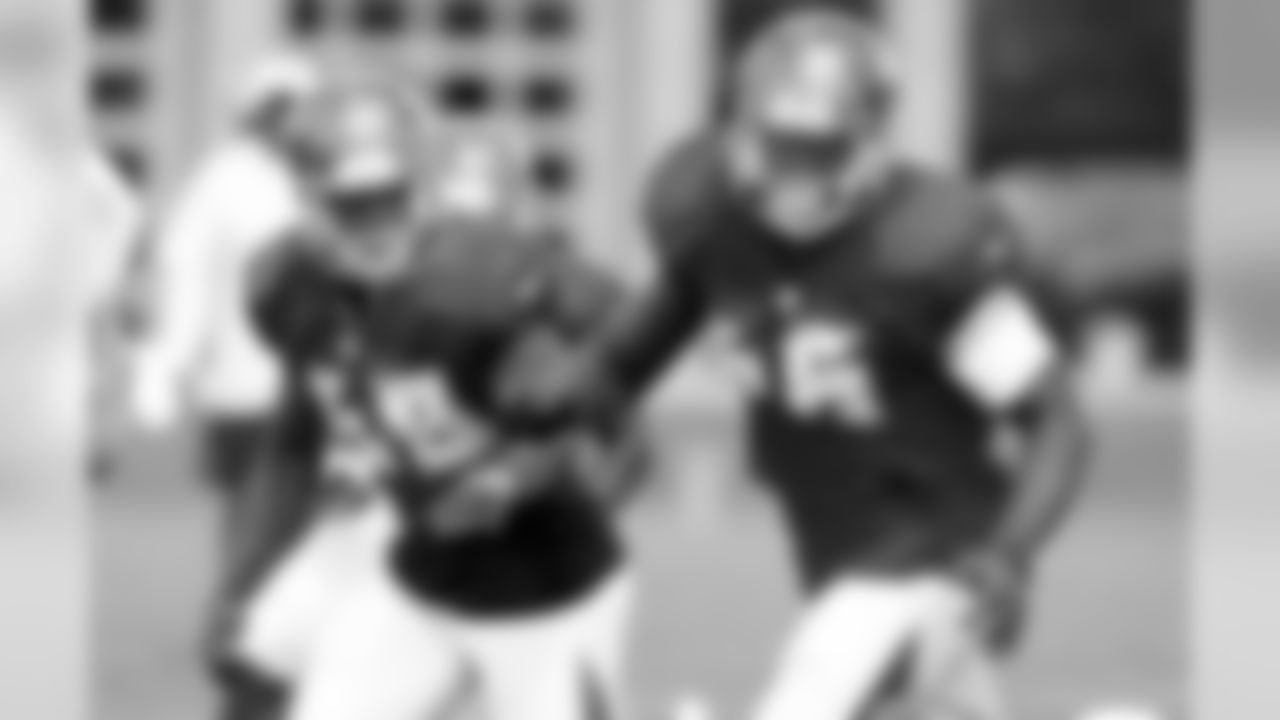
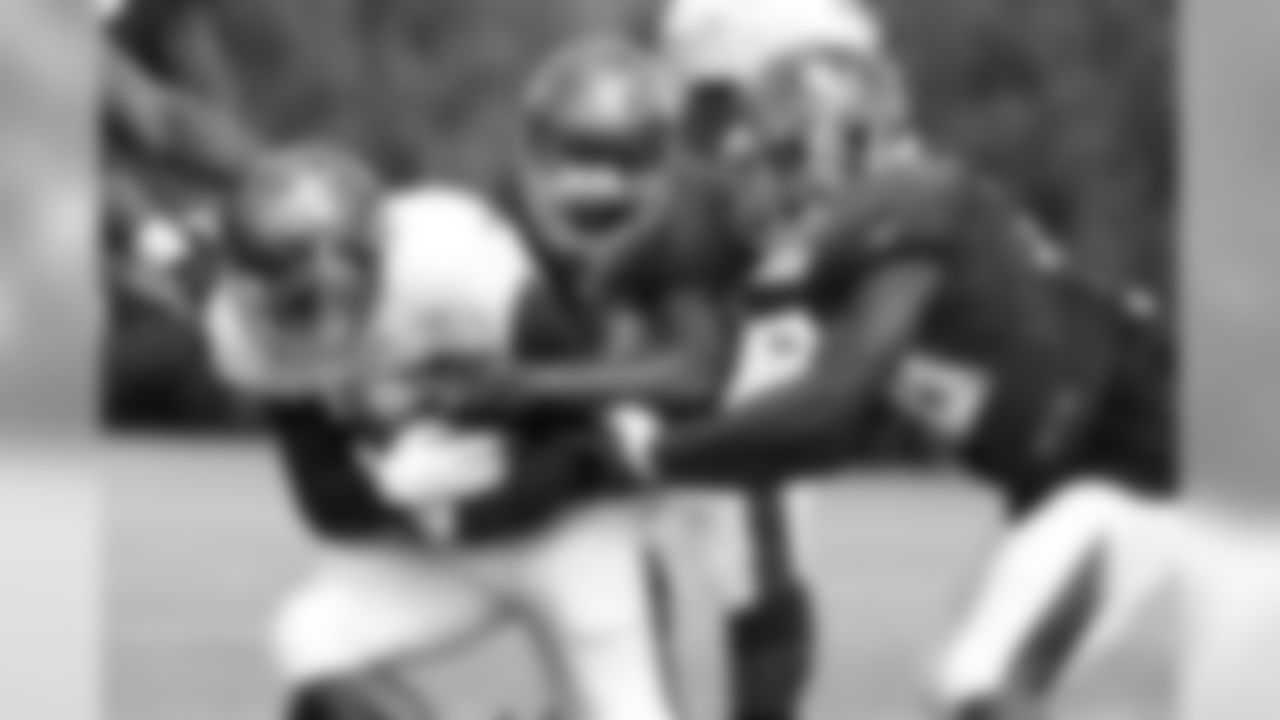

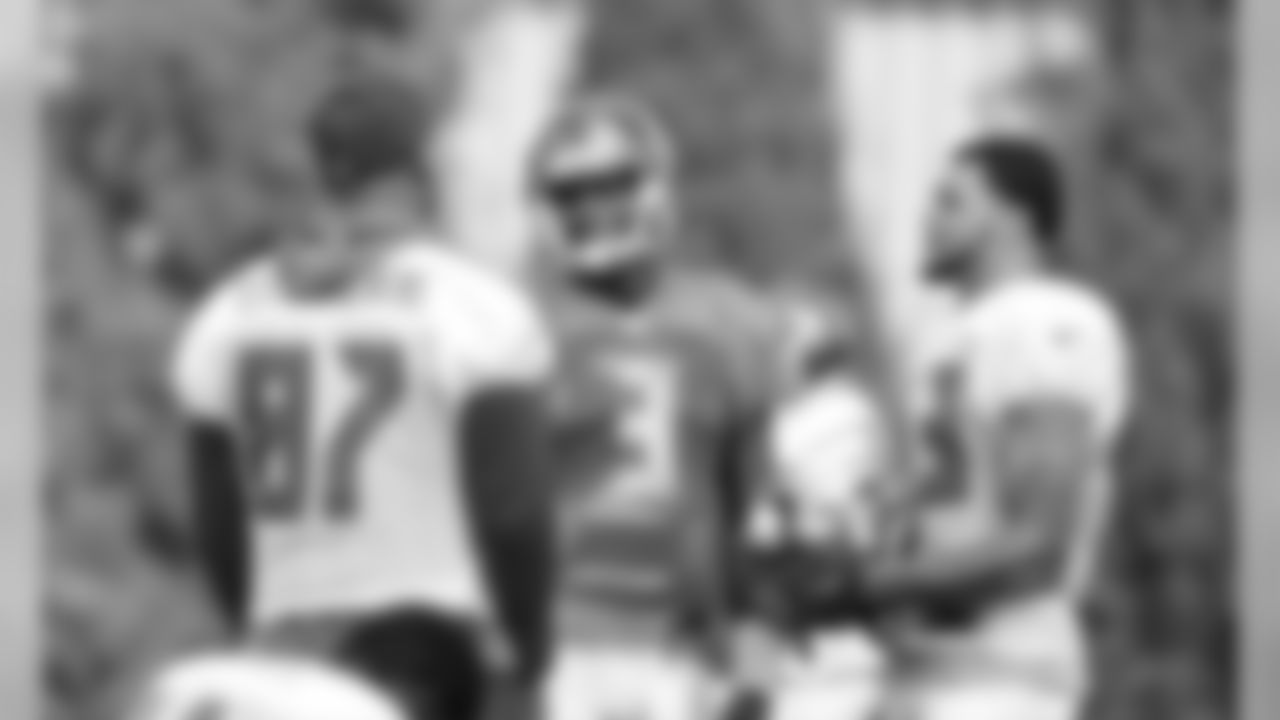


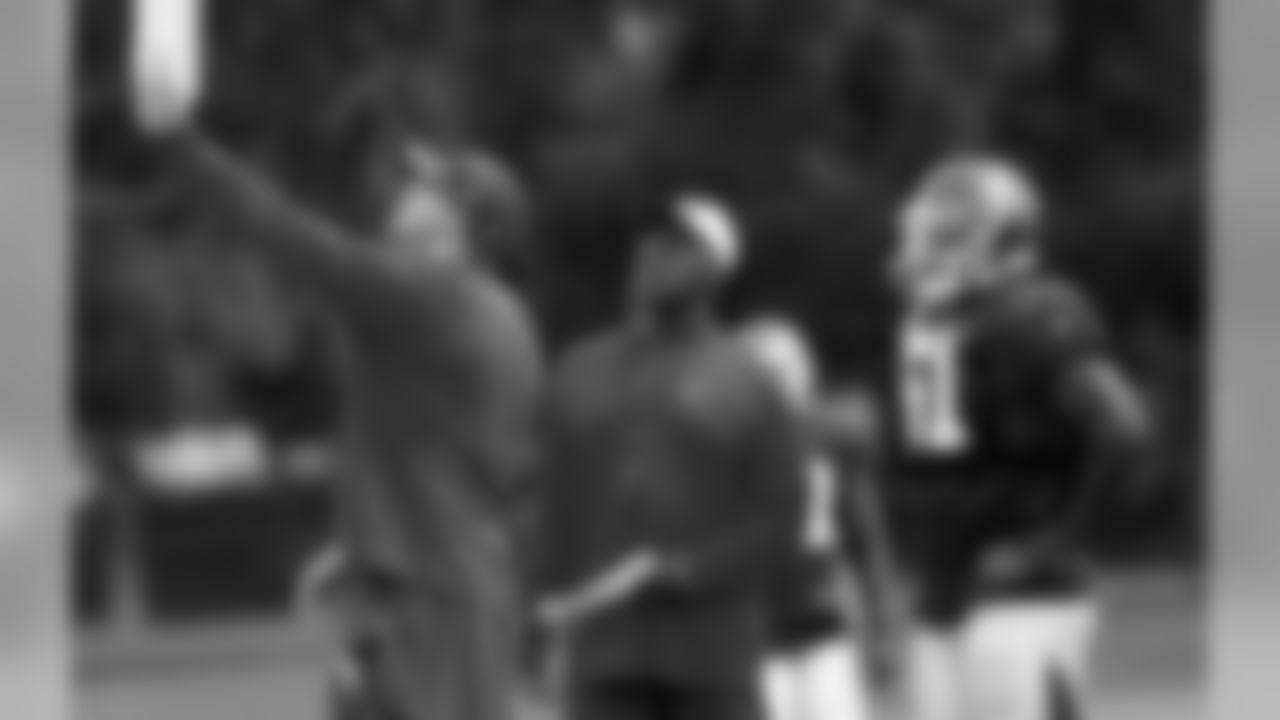
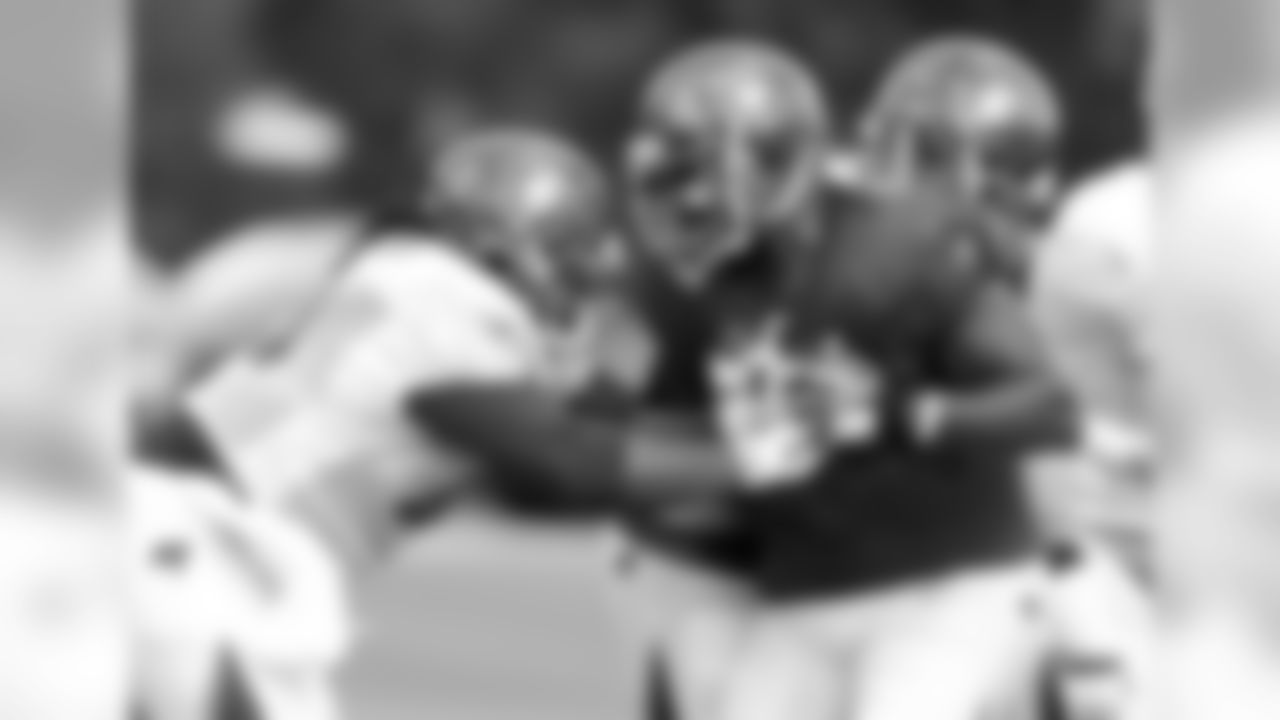
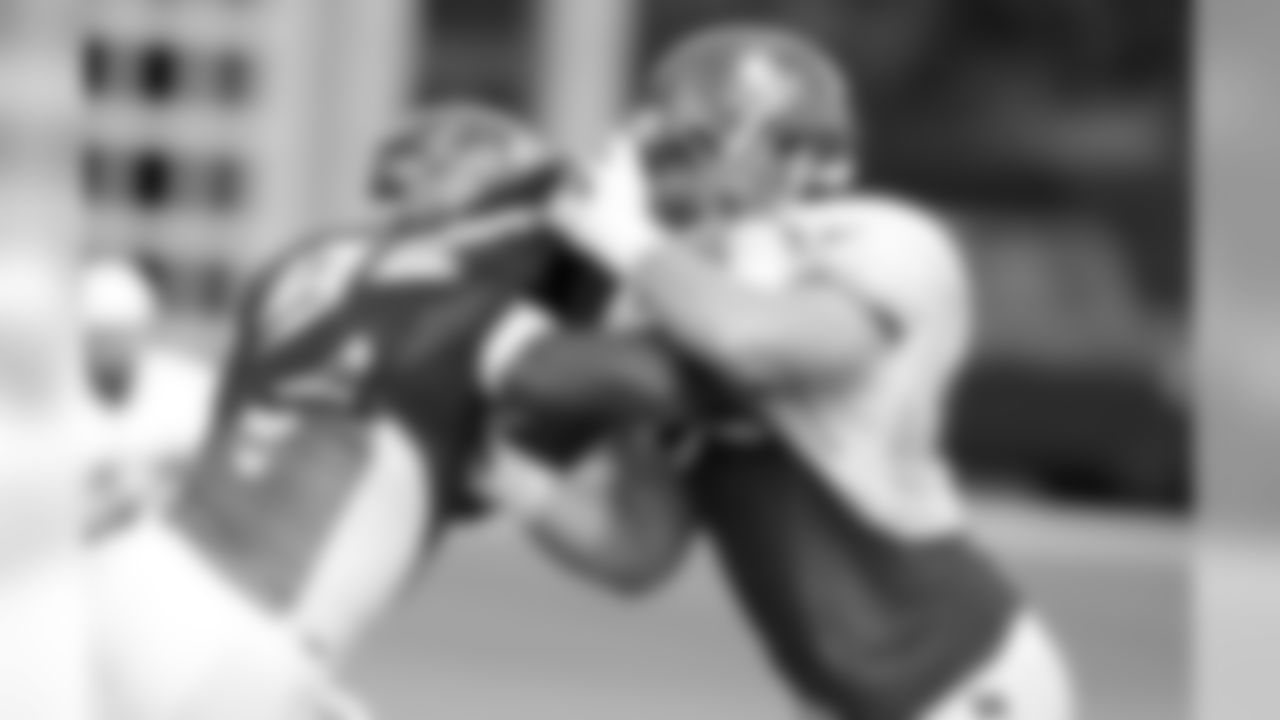
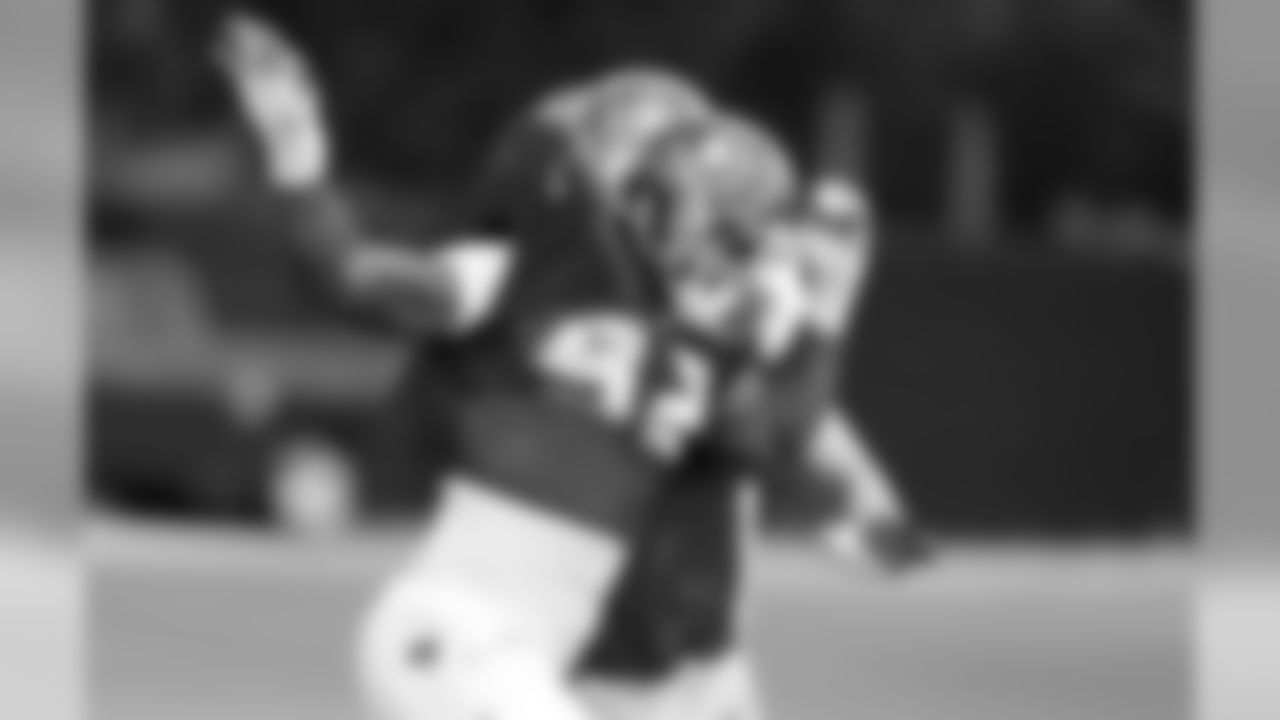
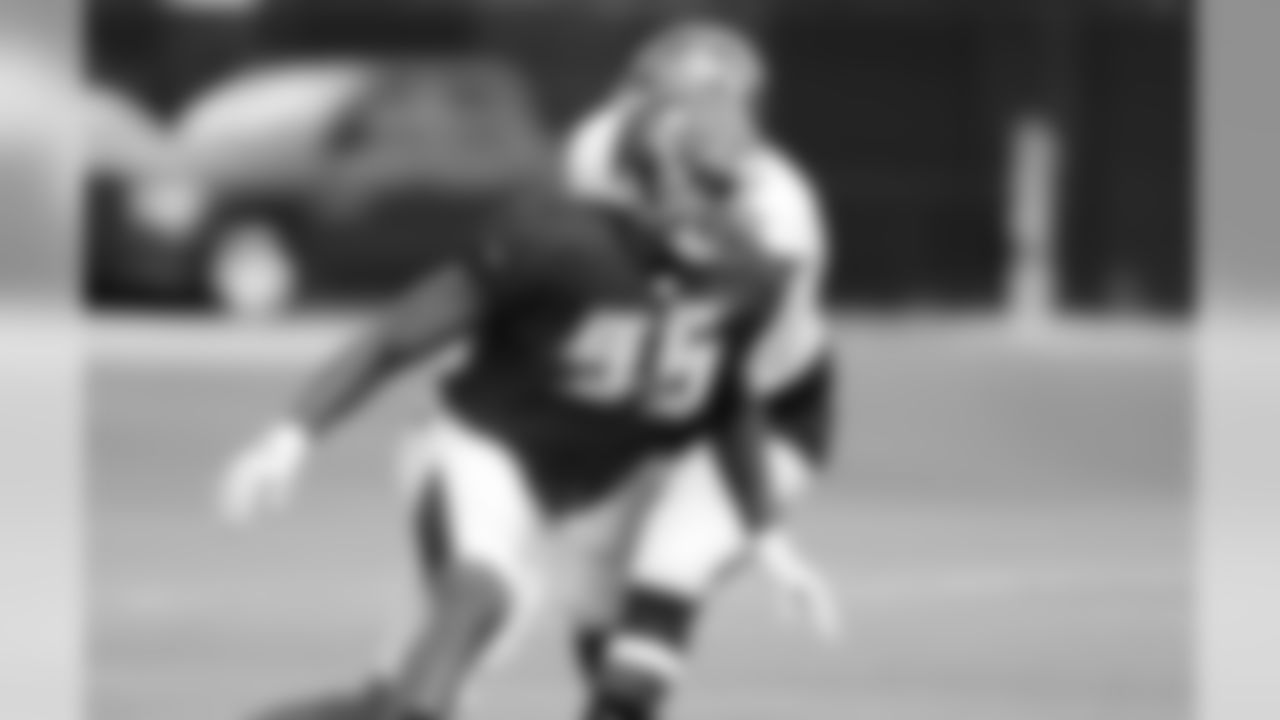

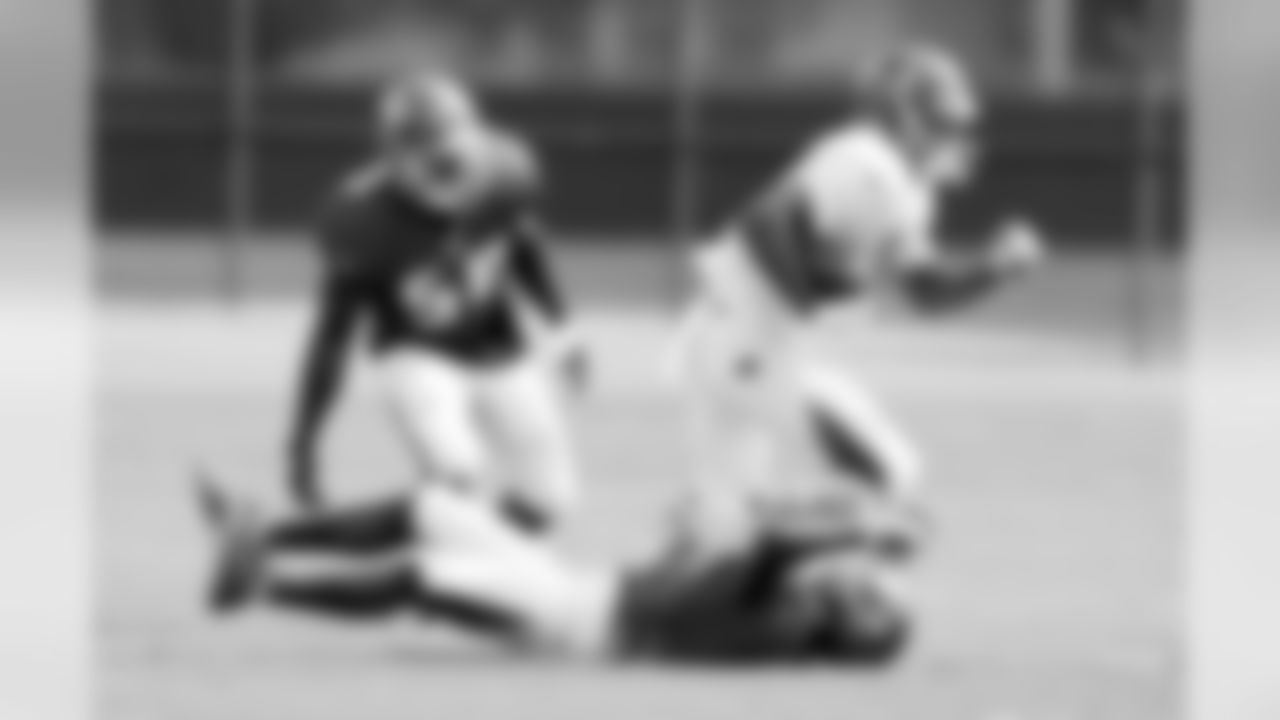
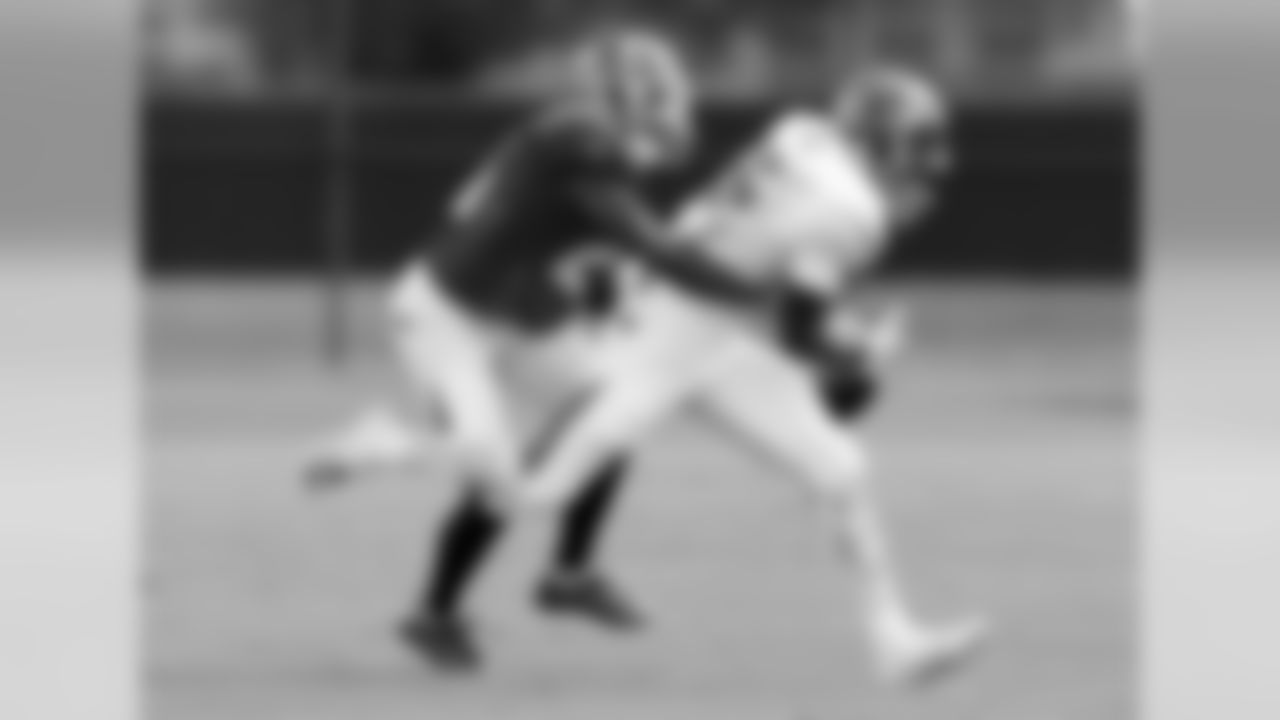
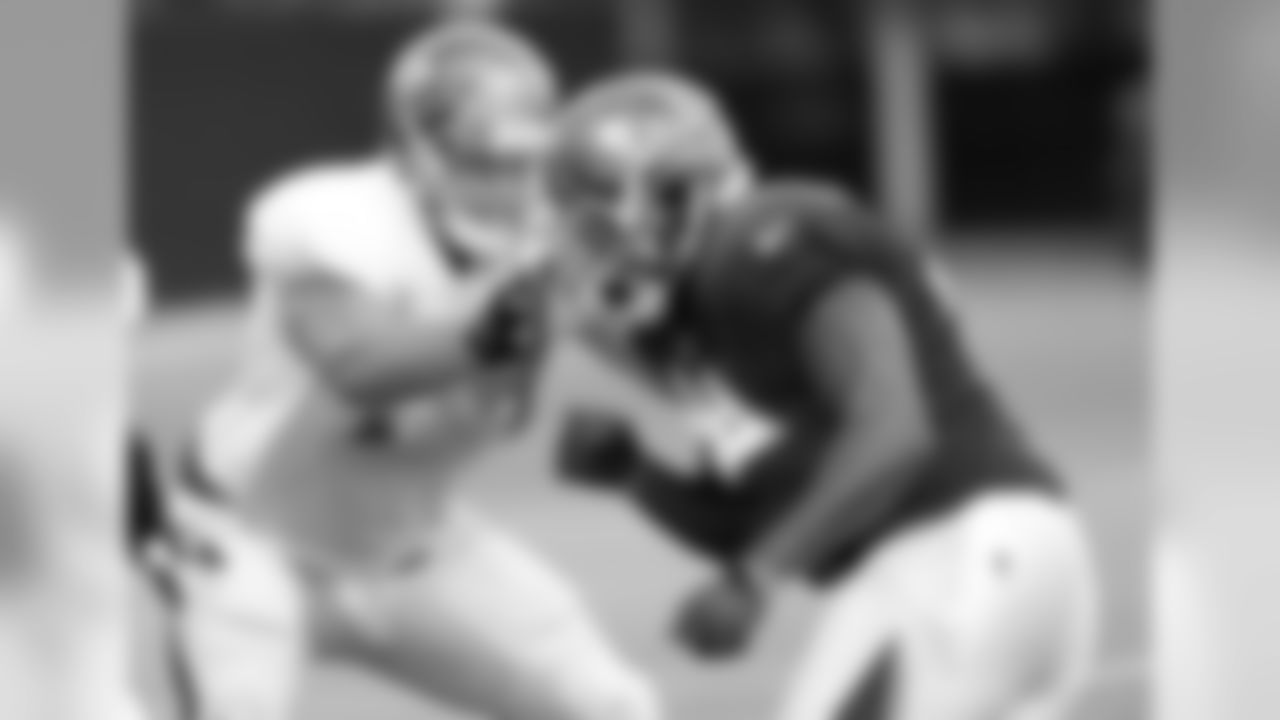
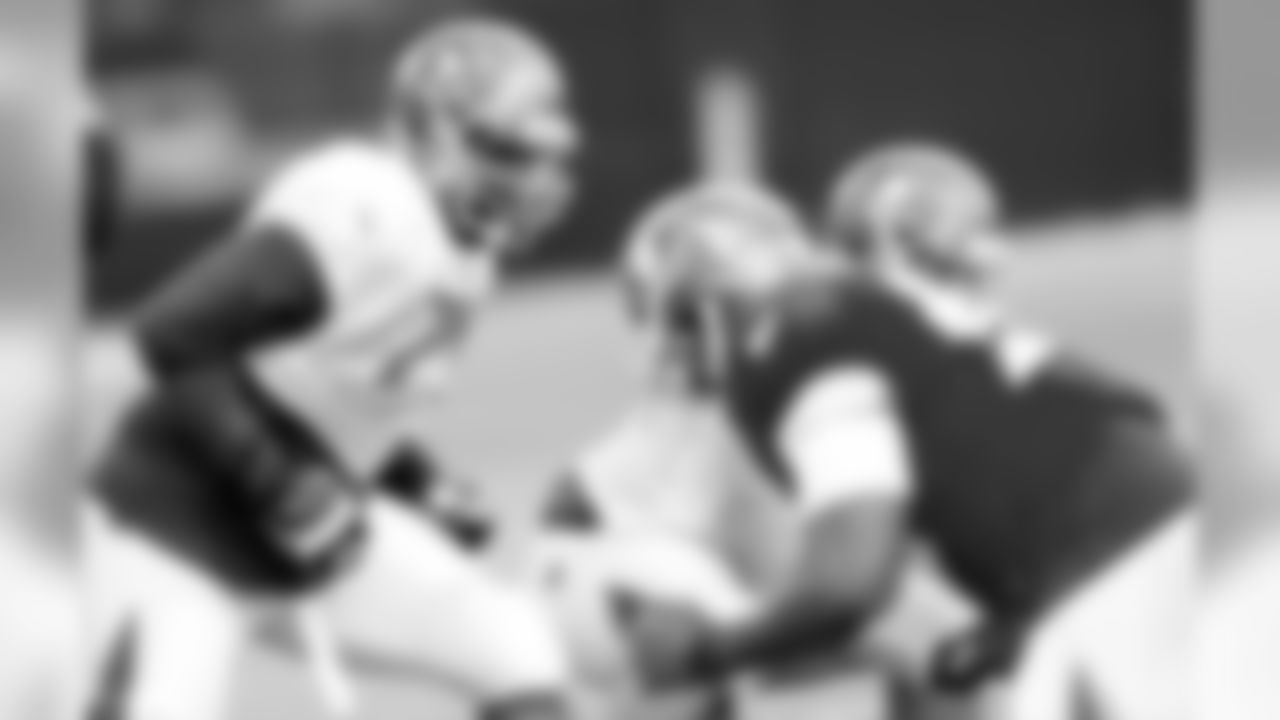
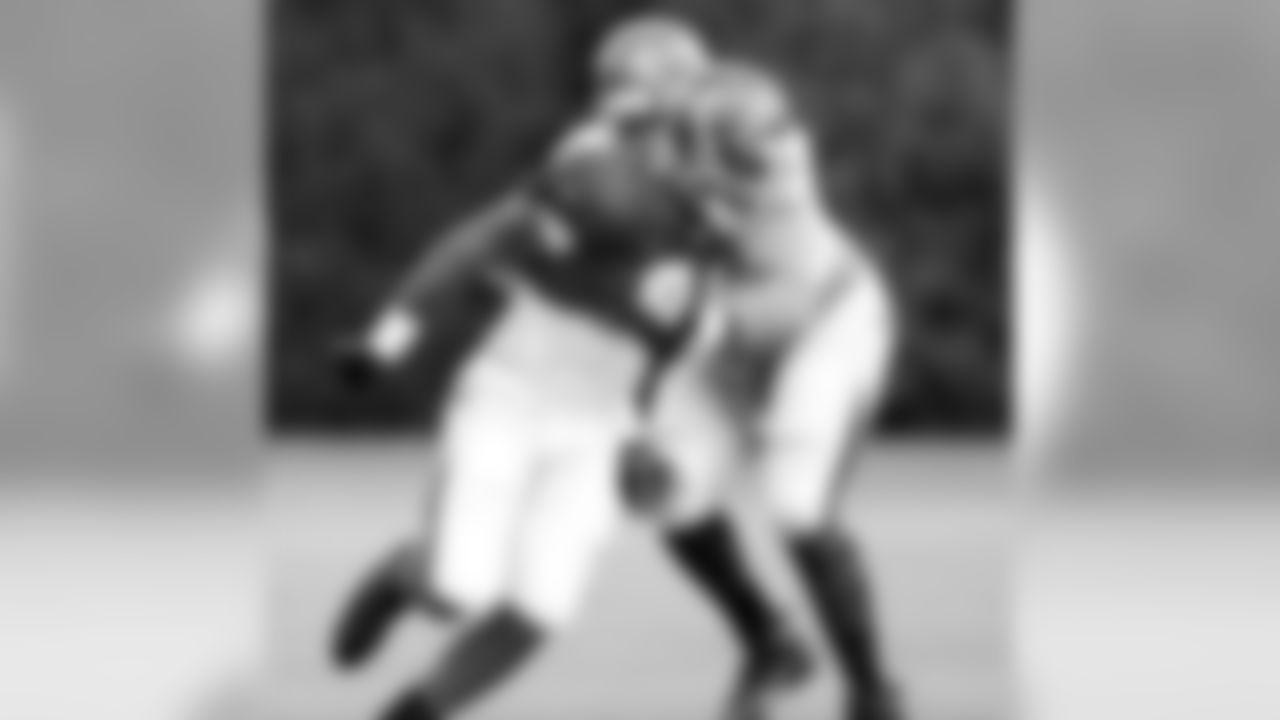
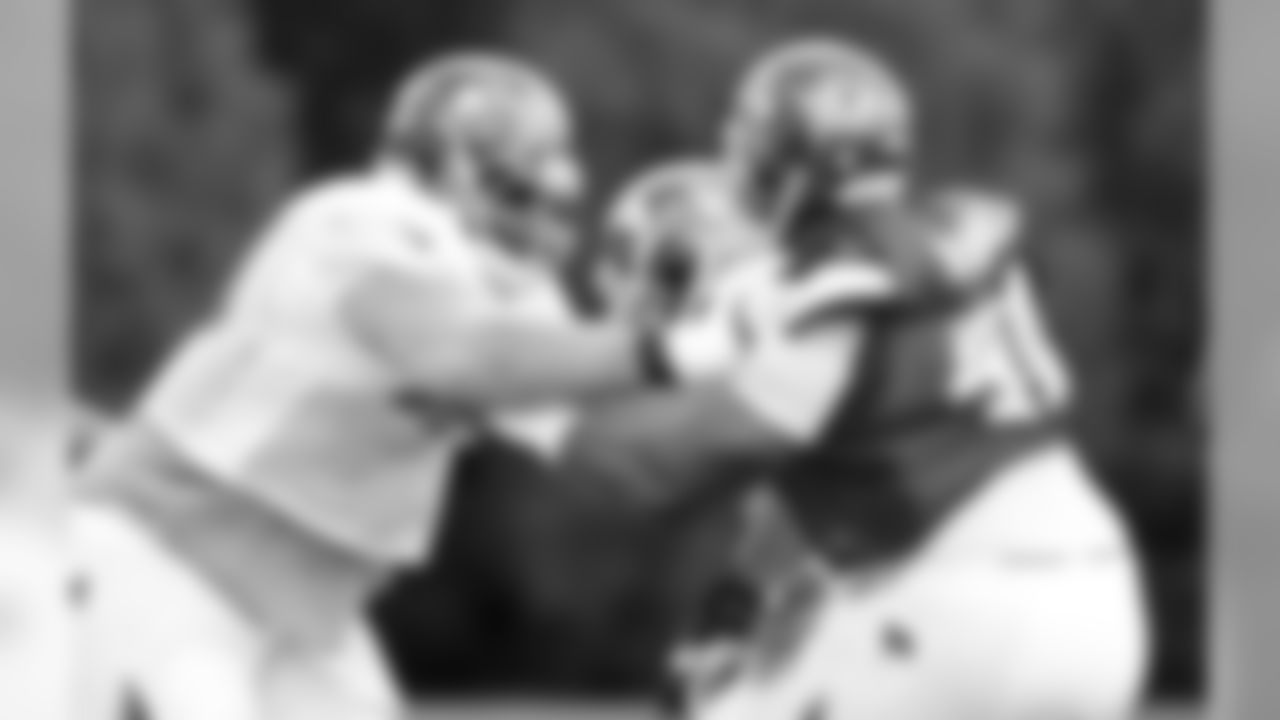

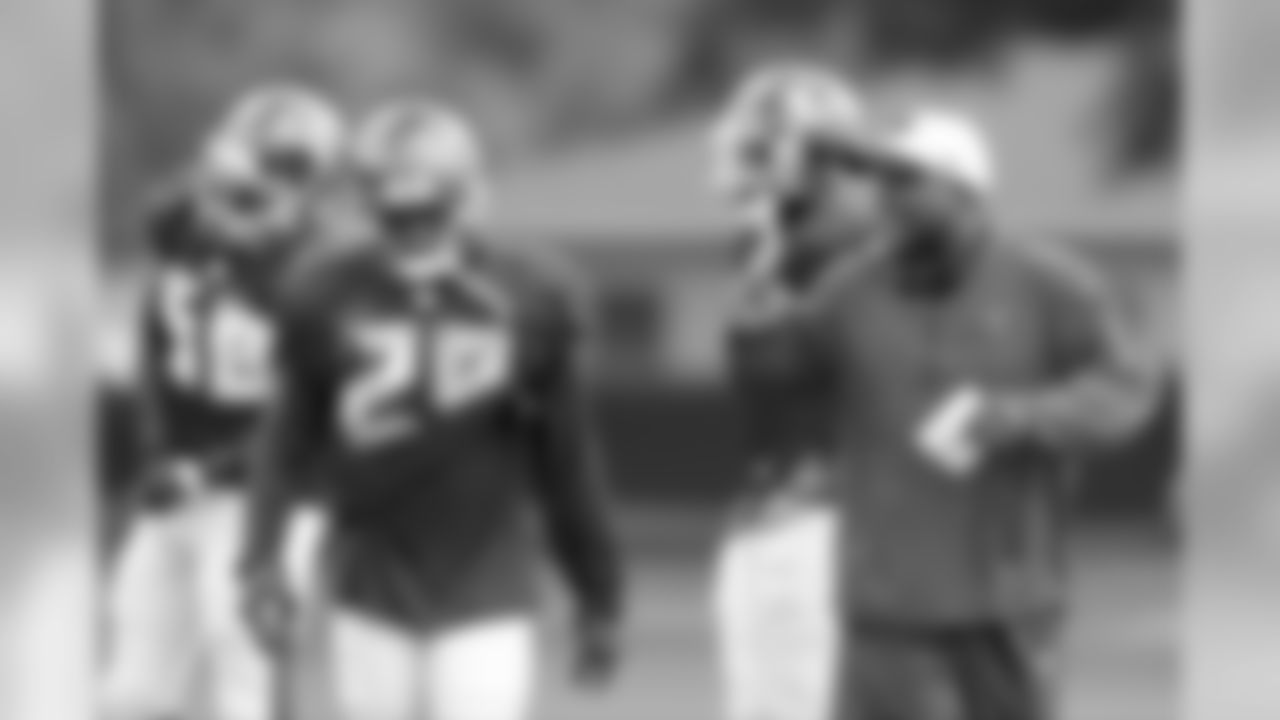
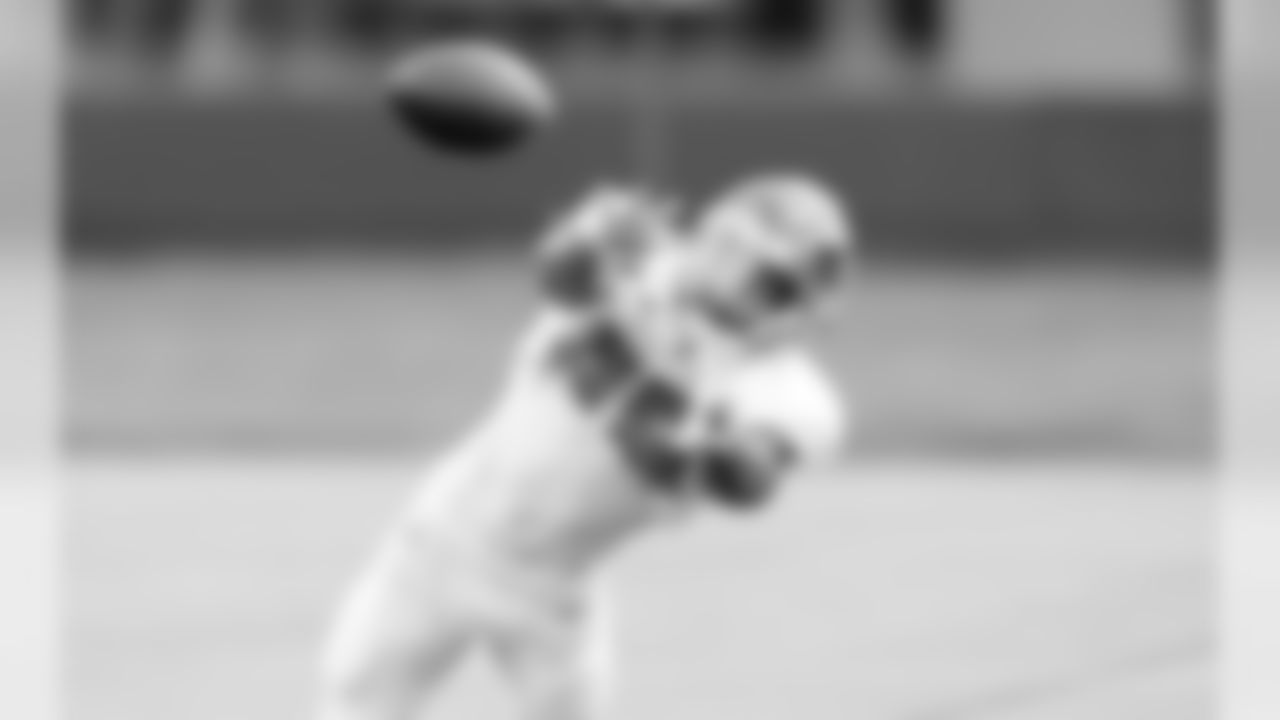

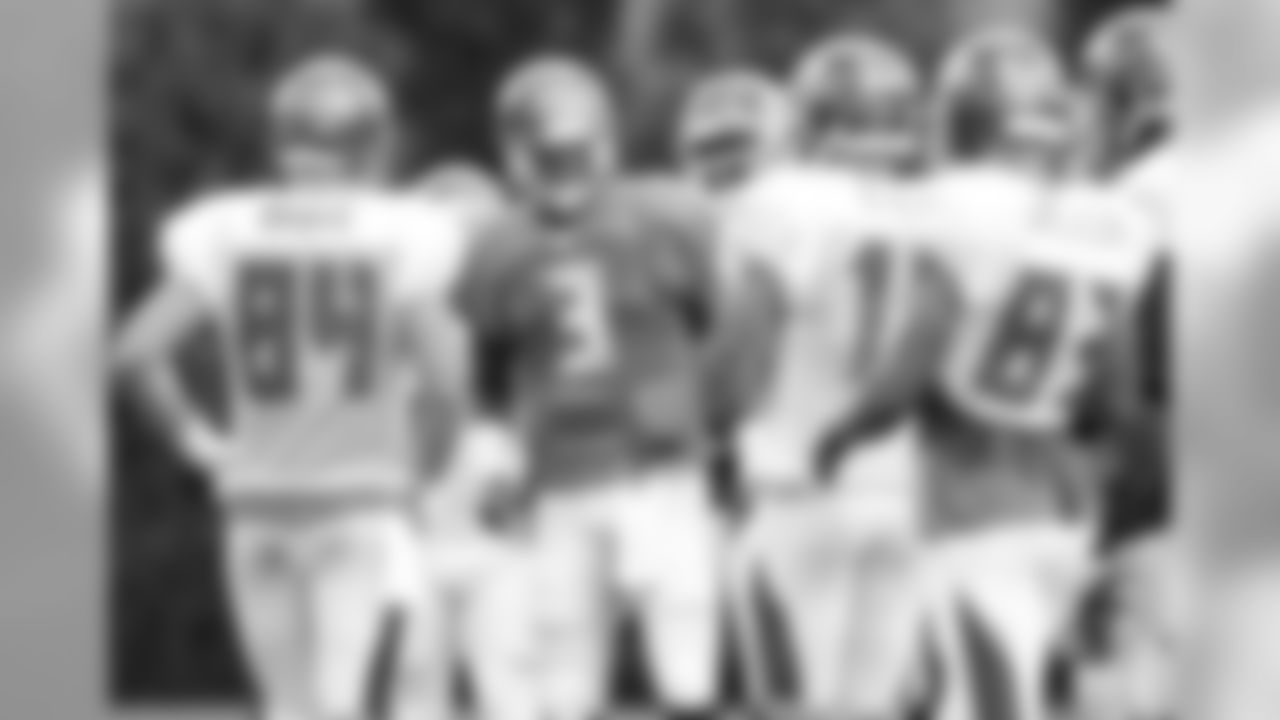
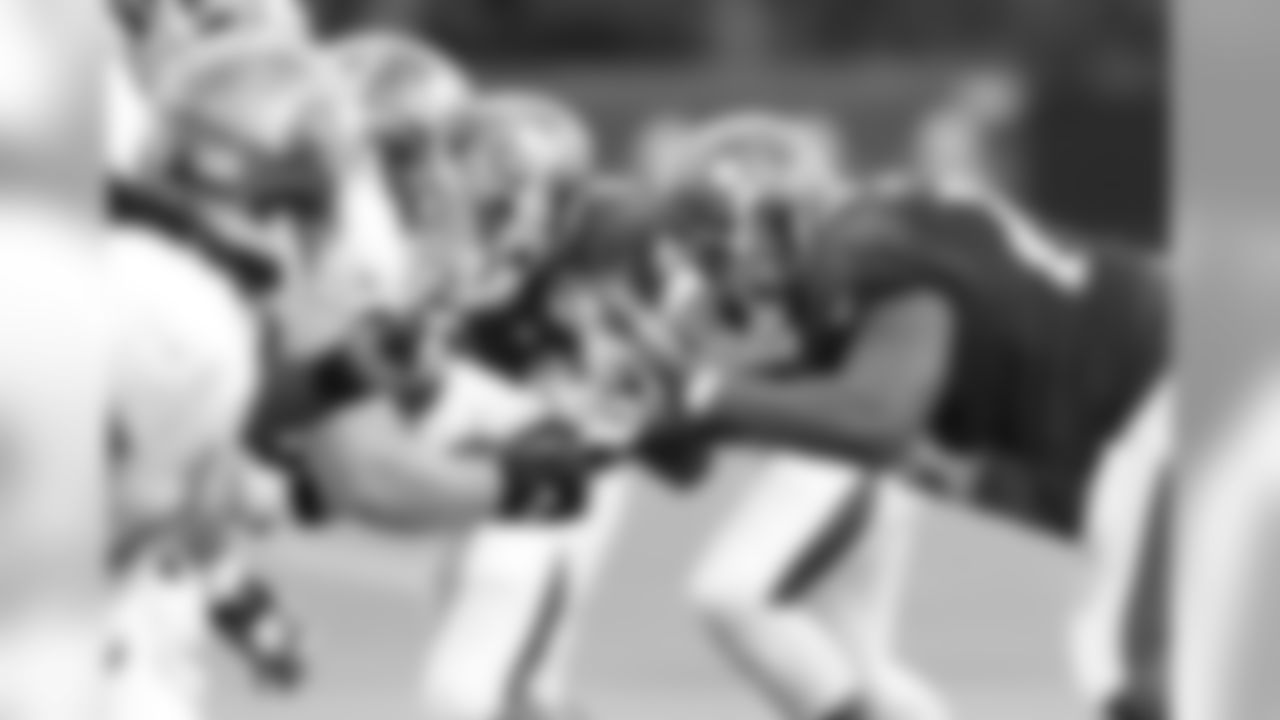
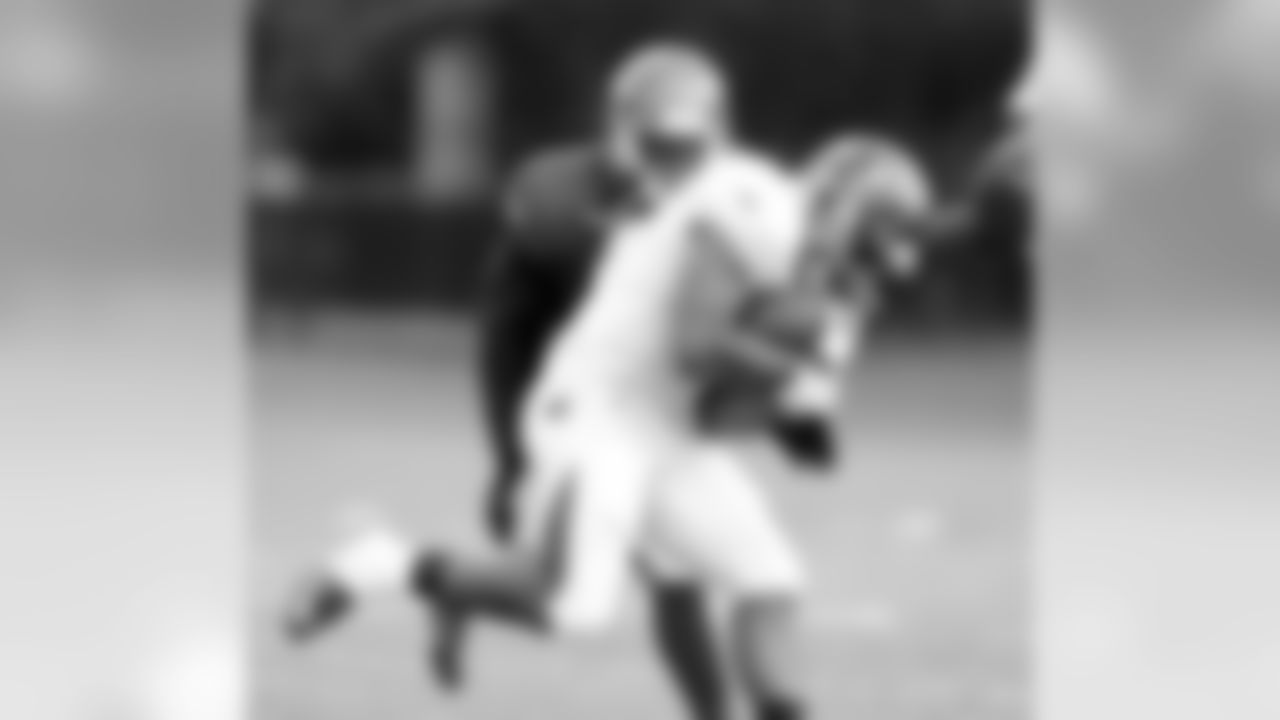
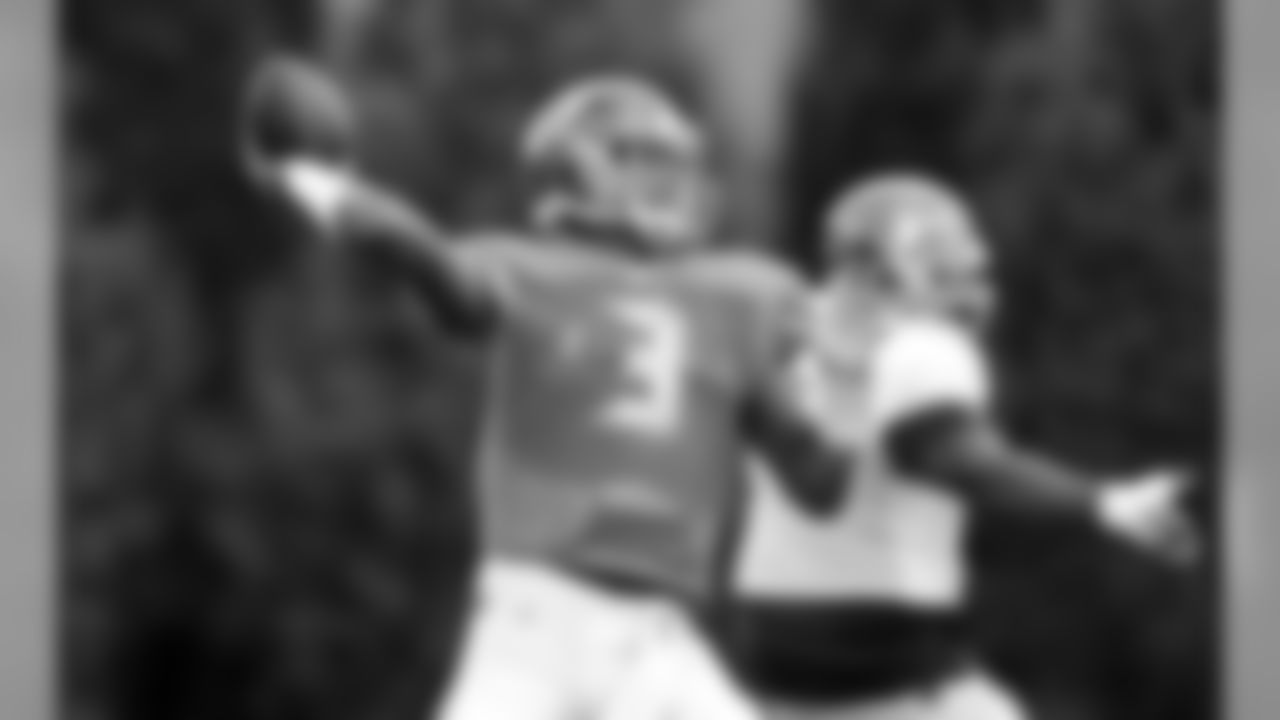
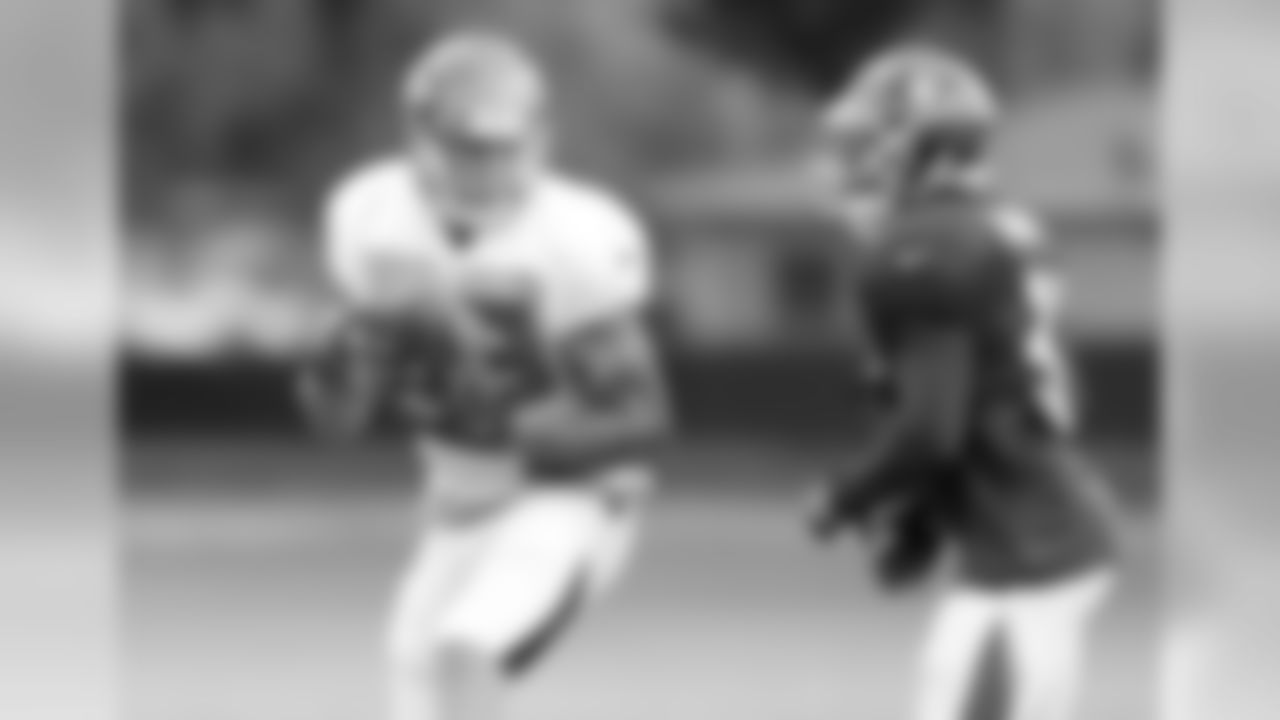
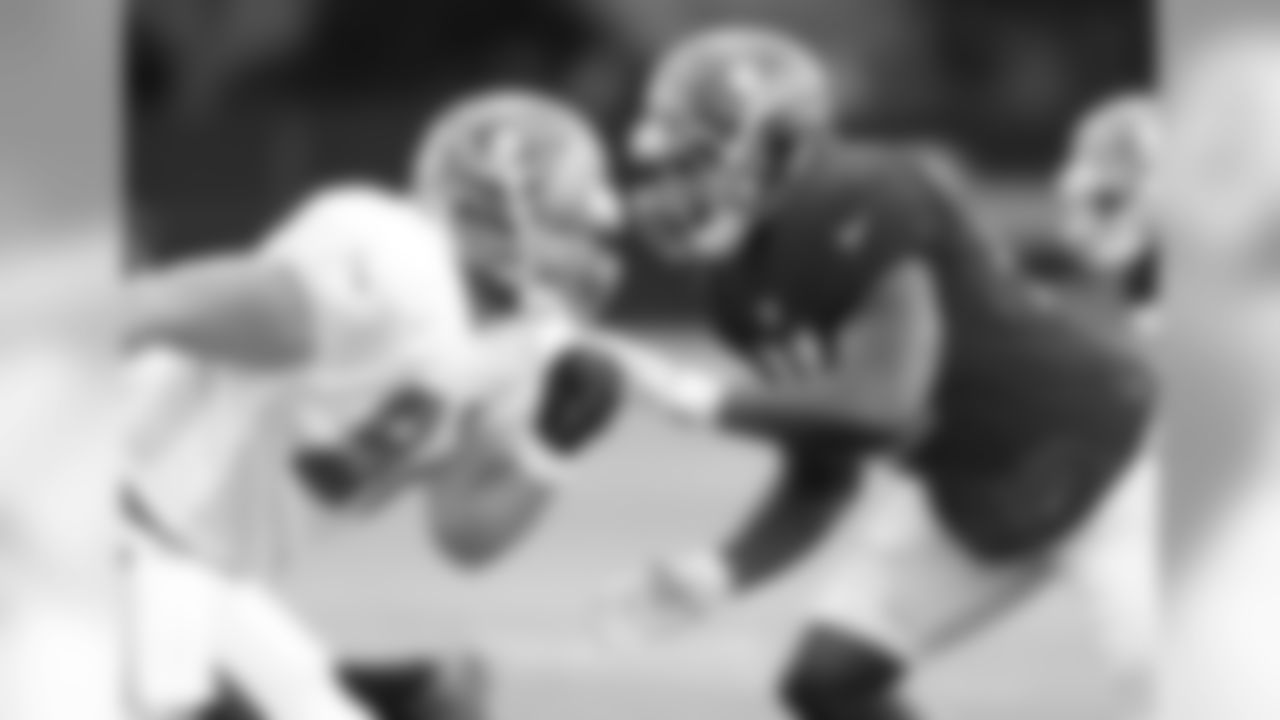


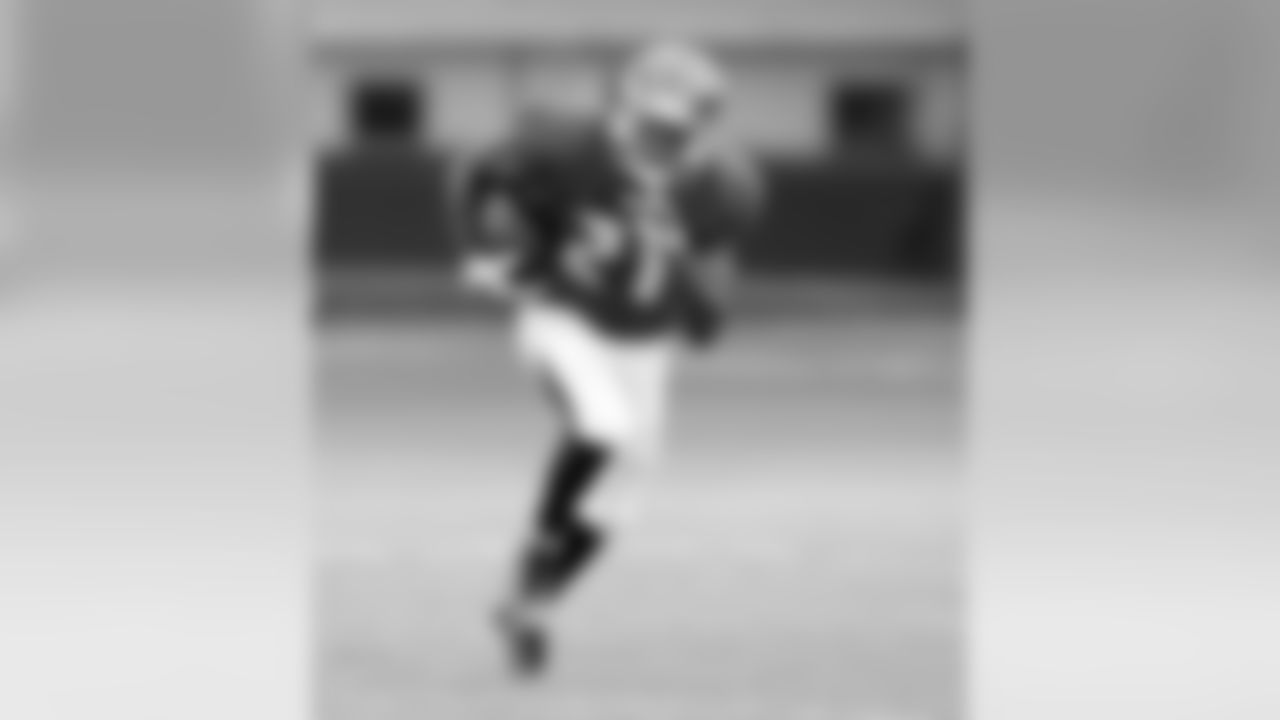
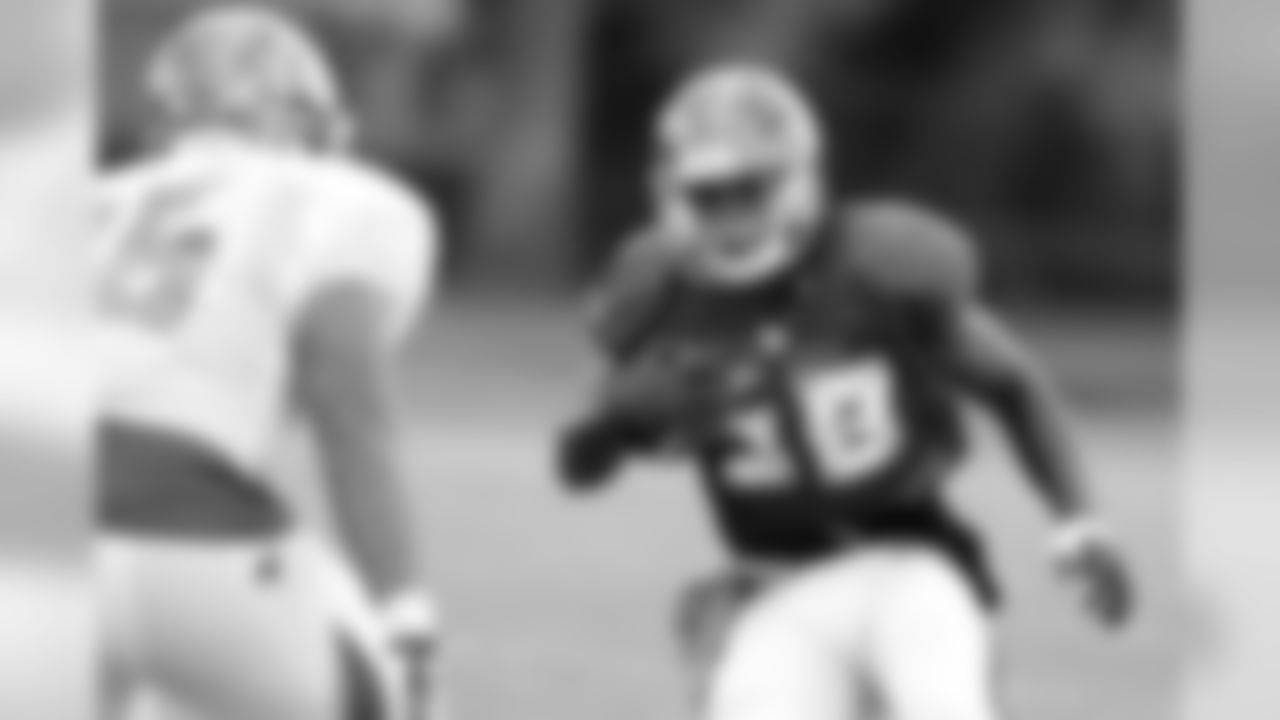
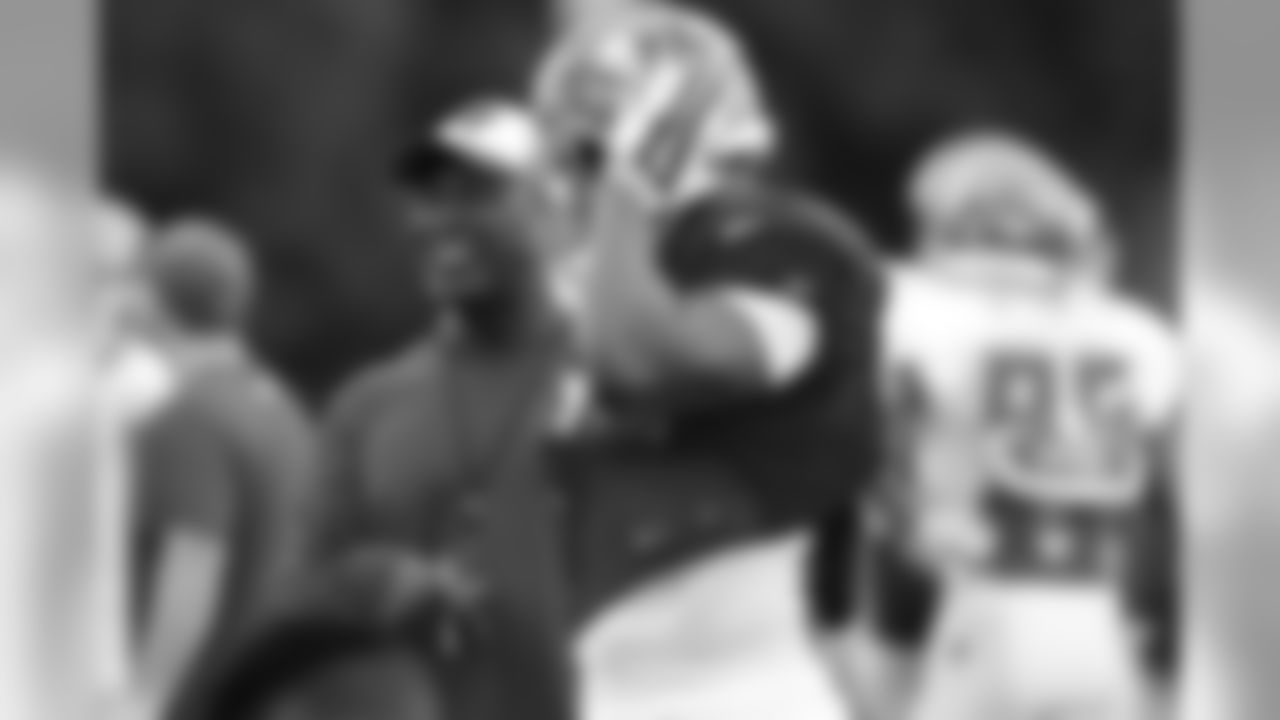
Jacksonville started last season with the idea of letting Bortles learn from the sideline as veteran Chad Henne led the offense. However, with the Jags starting off with consecutive losses and falling behind Pittsburgh in Game Three, Bradley went to his rookie. The Jaguars lived with the young passer's growing pains, and as a result Bortles is probably farther along in his first full season as a starter than he would have been otherwise.
At least, Bortles thinks it was best to get into the game so early in his career. If he's right, that could be good news for Winston and the Buccaneers, too.
PHOTOS: BUCCANEERS' UPDATED ROSTER
"I think both sides have pros and cons," said Bortles. "You look back and [sitting] was kind of the thing to do years ago and now the thing is to play right away. So I think there's good and bad to both of it. For me personally and my take on it is I think the faster or the sooner I can get live reps, the better. I think you learn quicker doing it in action. I think you get used to the speed of the game, I think you get more comfortable in the game the sooner you do it. You get [more quickly] adjusted I guess is what I'm trying to say. I know I enjoyed that. I was able to sit for two games and was able to learn, take some stuff from that, and then you try to implement that into your game. But you're going to see things on the field that you're not able to see on the sidelines, so it's just I think how quickly can you adjust."






















